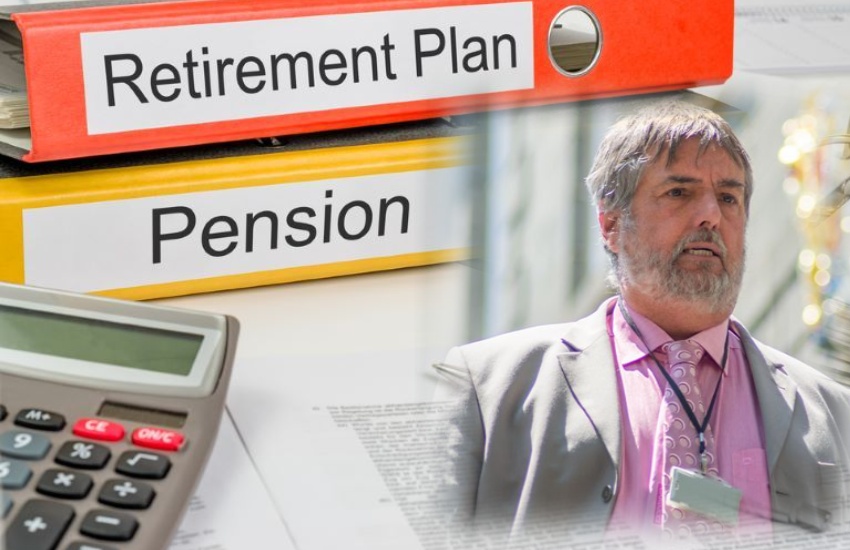


In an open letter, Deputy Peter Roffey has asked readers to give consideration to the Social Security aspect of the Tax Review package - which he fears is being overlooked.
Dear Editor,
I would like to say a bit about the crucial part of the so called “tax review” related to Social Security Contributions. This is a very important part of the package, and largely tends to be overlooked. There are two objectives with regards to the proposals to change the Contributions system: to make it fairer, and to raise the revenues needed to support pensions and long-term care for the decades ahead.
At the moment our Social Security Contribution system has some significant issues. When the contribution scheme was first introduced it was aimed solely at employed and self-employed people and supported so called “income replacement benefits” like the States’ pension, unemployment, sickness and invalidity benefits.
Over time we have extended both what the scheme pays for and who pays in to it. Today contributions cover a portion of secondary healthcare spending and the Long-term Care scheme. Over decades, as we have extended what the scheme does, we have also extended who pays and how much.

Pictured: The Committee for Employment and Social Security.
Unlike in the UK, Guernsey’s social security contributions scheme collects contributions from both people over pension age (in relation to health and long-term care) and those under pension age who are not employed, if they have income over a certain level. However, because it has evolved in a piecemeal way over many years, the resulting system is not always very coherent.
For example, if you are employed or self-employed, then you don’t get any allowance. This means as soon as your earnings pass the threshold of £163 a week, you are charged contributions on absolutely everything you earn (up to a very high weekly limit), not just your earnings above that lower threshold like you would be with income tax. However you are not charged anything in respect of your unearned income.
By contrast non-employed people and pensioners do get an allowance of £9,527, but in fact they don’t have to start actually paying contributions until their income passes £21,190 a year. However, by definition, non-employed people don’t have earnings so, together with pensioners, they are liable for contributions on all of their income. (If that doesn’t make sense, it’s a good illustration of how complicated the system has become.)
In practice this means you can have two rental flats next door to each other. If one belongs to someone who also has a job then the rental income isn’t liable for contributions. If the other belongs to someone who is a pensioner or who is not employed then it might subject to contributions if their total income is above £21,190 a year. Confused? Aren’t we all!
One of the things we want to do is try and untangle this. But it’s not easy or cheap. Firstly, we propose giving everyone an allowance which is matched to the income tax allowance. If you are a low or middle income employed person, that’s great news for you because you are going to pay less. However, that allowance is going to cost us a lot of money (around £19m), so we need to put the contributions rate up to recoup the lost revenue. If your income is modest you will still pay less in contributions, but you might see an increase in your contributions if your income is high.

Pictured: Deputy Roffey is concerned the pension problem is not being given its due prominence.
The second step is to make sure that everyone pays contributions on the same basis. So, if you have income from a rental property, that income will be taken into account when working out if you are liable to pay contributions and, if so, the amount you must pay, whether you work or not. Again, that’s likely to take a little more off those people who have more.
Overall the changes will make the system more progressive which is a highly desirable outcome. However, it does limit the capacity of the system to meet the £34m a year shortfall on covering the long-term cost of pensions and long-term care which has been identified by the government actuary.
In October 2021 the States agreed to raise that £34m in full from increases in contribution rates without any restructure. The proposed restructured system in the Tax Review raises only £19m which comes largely from increasing the amount employers are expected to pay. It would be difficult to raise anymore from the restructured system without pushing the rates to a level where they would become uncompetitive.
So, to achieve both the objectives of making the Social Security Contributions system fairer and properly funding pensions and long-term care benefits we need another source of revenue. That is where the GST comes in. The progressive reform to social security and its benefit to low-income households is a good partner for a GST. It is doing a large amount of the heavy lifting in terms of reversing the regressive effects of the GST so that the overall package actually leaves lower income households better off.
The package lowers our excessive reliance on income-based taxes, while broadening our tax base to pick up a contribution from visitors and those who support their lifestyle through capital drawdowns rather than through income. It will also take us further than just scraping together a few extra pennies to get us over a rough spot. Rather it will give us a greater stability and a reasonable surety that we can avoid the kind of funding crises that plague other jurisdictions. We are less likely to have this discussion again in four years if we tackle the problem properly now rather than just fiddling round the edges.
In the same way that many have overlooked the role of social security reforms in the recommendations, because GST has stolen the focus, I think there’s a risk people will not be aware of what the alternative path would be for social security contributions if the proposals aren’t passed.
Firstly, what if we simply reject any change, or delay the whole decision? Well, the States has already agreed an effective ‘plan B’ which was supported by pretty much all States Members at the time. It is important to realise that it means a considerable hike in social security rates over ten years without any allowance to soften the blow for low earners. This means you will pay more, and there will be no reforms to remove the inconsistencies and unfairness that I’ve already described.

Pictured: Deputy Roffey warns this week could see hikes in social security contributions if the States reject the Tax Review proposals.
What if we support Deputy Parkinson’s proposal to pursue a territorial tax? Well that amendment would leave us with the ‘plan B’ for social security, on top of seeing the other progressive tax measures such as the 15% income tax band ditched, meaning no progress towards a fairer, more progressive tax system for individuals which I think would be a huge shame. And there is an ironythat this proposal is championed as being for the ‘little guy’ but actually leaves them worse off.
In the case of the amendment from Deputy Soulsby, I’ll be honest, I’m less clear on what will happen. It proposes to keep the social security reforms that P&R are recommending which from my point of view sounds good... that is, until you see there’s no revenue raising mechanism to replace GST, meaning it’s not clear how you could actually find enough money to keep our states’ pension and long-term care schemes on track and the reformed scheme would eventually run out of cash. The two go hand in hand. You can’t just take out the unpopular bits and keep the good bits, the jigsaw pieces don’t fit that way, which is where this plan falls apart.
Pensions and long-term care are things that need to be planned for over lifetimes. This is about the long game. We need to lift our eyes beyond the election horizon and see not just what tax rises will mean for the community of today, but what inaction will mean for the community of tomorrow. I will close on a sobering thought. If we do not raise additional revenues soon, we will need much bigger increases later to avoid the States’ pension fund being empty by the time our current 50-year- olds reach pension age.
The clock is ticking.
Kind Regards,
Deputy Peter Roffey